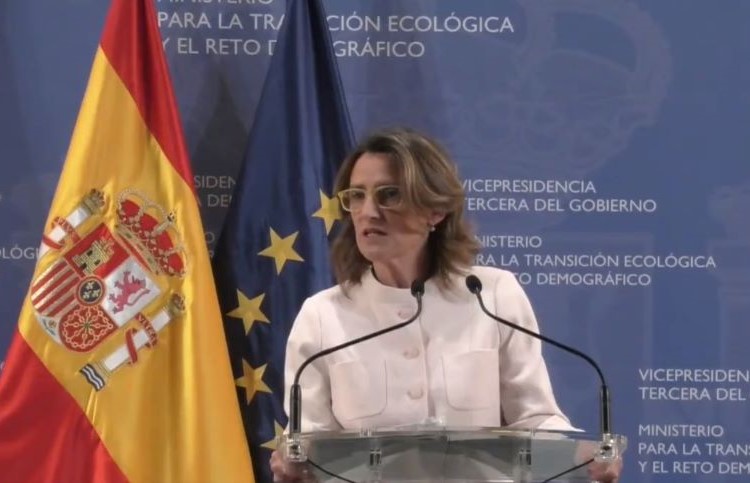Eduardo González
The impact of the COVID-19 pandemic on the movement of people and goods and on economic activity has contributed to a decrease in the global presence of most of the countries of the world, with the notable exception of China, which has increased its weight despite being the country of origin of the coronavirus. In this context, Spain appears as the country that has lost the greatest volume of global presence due to the “enormous setbacks” in its “economic and soft dimensions”.
These are some of the main conclusions of the Elcano Royal Institute’s Global Presence Report 2022, which was presented yesterday by the Think Tank’s president, José Juan Ruiz, and researchers Iliana Olivié and Manuel Gracia Santos at the Botín Foundation’s headquarters in Madrid.
“Before the outbreak of the pandemic, globalization was already showing signs of fatigue” and, in fact, “the sum of the value of the Elcano Global Presence Index for the 150 countries for which we calculated it had reached its maximum in 2015,” the document points out. As for 2021, the new data show a contraction of this aggregate value of 2.35% with respect to the previous year, which is the largest annual drop in the entire time series (which begins in 1990), “higher than that which occurred after the disintegration of the Soviet bloc,” Iliana Olivié explained.
The study also reveals that, of the three dimensions of economic, military and soft presence that are usually analyzed in this study, the latter has been the hardest hit by this contraction (7% between 2020 and 2021), despite the fact that soft exchanges (science, technology, culture, migrations or tourism) had shown the “greatest dynamism during the last two decades”. “The soft dimension has plummeted”, which “is not surprising after a year of confinements and interruption of people’s movements”, Olivié explained.
The report captures the evolution of global presence between 2020 and 2021 in 150 countries representing more than 98 of the world’s population and economy. Because of the period of time analyzed, the document does not include “the effects of the war in Ukraine”, specified the researcher, who, nevertheless, dared to make a diagnosis. “For the next few years, inflation alone will have an impact on the overall aggregate presence, not only because of the fall in investments, but also because of its influence on cultural projection and tourism and on the rise in energy prices,” she explained. In addition, “an increase in the global presence of Russia in the military field, of Ukraine through variables such as information or migration and of the US and the EU through development cooperation is foreseen”, she added.
USA, China and the EU
The study also indicates that, as in previous editions of the Elcano Global Presence Index, the ranking of the top 20 countries remains relatively stable, with the same group of countries occupying similar positions for several consecutive years and showing that, despite the geopolitical and geoeconomic changes described in previous editions of this report, “the West and/or the North continue to monopolize a large part of the aggregate global presence”.
However, the document also reveals that, although the US continues to hold the top position, China has gained “an enormous amount of outward projection” and continues to “narrow the global presence gap with respect to the United States,” such that the value of the Asian giant’s global presence index is now 2.3 times lower than that of the American giant, when just a year ago it was 2.9 times lower. “Global presence is shifting from Europe to Asia, and it is not a trend from one year to the next, it is a trend that has been going on for some time,” stressed José Juan Ruiz.
As far as the EU is concerned, “if we take it as a single country, its degree of internationalization is greater than the two powers fighting for hegemony, the United States and China,” Ruiz continued. In fact, according to the report, the EU registers a global presence index value of 3,377 points in 2021, higher than that of the United States (3,241) and much higher than that of China (1,365).
However, between 2020 and 2021, coinciding with the COVID-19 pandemic and with the materialization of Brexit, the global presence of the EU has decreased by 300 points, while the external projection of the United States has fallen by only six points and that of China has increased by 62. “The exit of the United Kingdom from the EU has affected the external projection of the Union, with a maintenance of the economic projection despite the pandemic, a sharp fall in the soft projection and a loss of military presence,” explained Manuel Gracia Santos. “The world powers deploy their presence in all areas, economic, military and soft”, but “Europe’s global presence is, above all, economic”, he added.
Spain
In these circumstances, the report indicates that “Spain is the country that loses the greatest volume of global presence among the 150 countries for which we calculate the Index, despite retaining its thirteenth position.” Specifically, Spain’s global presence has decreased by 11% in just one year, due to the “huge setbacks in its economic (-12%) and soft (-16%) dimensions”.
The economic dimension has been particularly affected in the variables of energy (-37%), since fuel exports are an important component of Spain’s sales abroad, and services (-41%), a “phenomenon strongly related to the fall in exports of goods and to the confinements and limitations to human mobility, including tourism,” according to the report. Apart from that, “all the variables of Spain’s soft presence decreased with respect to the previous year, with the sole exception of science, following the global trend,” the study continues. The biggest decreases in this soft dimension are those of tourism (-57%) and culture (-17%) “which are, precisely, two important channels for the country’s external projection”.







